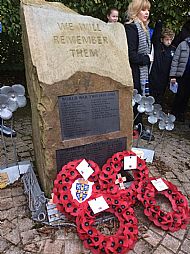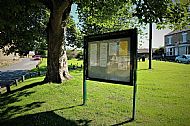Evenwood and Barony Parish Council
The Parish is situated in the lower Gaunless Valley areas of County Durham. It covers the villages and hamlets of Evenwood, Evenwood Gate, Ramshaw, Lands, Windmill, Morley and parts of Toft Hill and Etherley. We have approximately 2,500 residents with the main population centre being in the village of Evenwood. The Barony is an historic term to cover the areas of the other villages the council serves.
NOTICE OF PARISH COUNCIL MEETING
The next parish council meeting will be held in the Randolph Community Centre, Stones End, Evenwood, Bishop Auckland, DL14 9RE, commencing at 7:00 p.m. on Tuesday 8th April 2025. A period of 15 minutes is allocated at the beginning of each meeting for members of the public to raise questions or concerns. They are welcome to remain after this period but will not be able to join in the discussions unless invited by the Chairman.
Public participation
Meetings of the Parish Council are usually held on the second Tuesday of each month, except August, at 7:00 p.m. in the Randolph Community Centre.
As part of the Parish Council’s commitment to improving the level of public participation in local government, members of the public are invited at the beginning of meetings to make representations or ask questions relating to the business on the agenda and should contact the Parish Clerk for the log-in details or email any written statements/questions no later than 5.00 p.m. on the day before the meeting. Members of the public are welcome to stay and observe afterwards but will not be able to join in the discussions unless invited to do so by the Chairman and they should not heckle or disrupt and should respect the rulings of the Chairman who has the right to exclude a disorderly person as a last resort.
The role of the Parish Council
Parish Councils can provide allotments; run play areas; look after rights of way; provide seats and shelters; publish newsletters; support rural transport initiatives; give grants to local groups; comment on planning applications within the Parish – to name but a few of the issues they can deal with.
Evenwood and Barony is an active parish council, determined to make a real difference to the village. The key objectives are to improve village facilities, to encourage and support an active events and activities programme, to improve the village’s appearance and to represent the village’s interests.
Evenwood and Barony Parish Council works closely with Durham County Council and other bodies to ensure the needs of the Parish and its residents are not overlooked. The county councillor for Evenwood Ward, who is also a parish councillor, attends the meetings and reports on matters of interest and often liaises with Durham County Council on behalf of the Parish Council.
The Parish Council is a group of local people elected as community leaders to represent the views, opinions and interests of residents living in the parish. Parish Councils are the most local tier of statutory representation in England, the first tier of Local Government. They are non-party political. They bridge the gap between local authorities and communities, and help to make public bodies aware of the opinions and needs of the communities they represent. Their primary purpose is to ascertain and express the views of the community to the local authority and other public bodies.
Many Parish Councils also involve themselves in wide range of other activities including fundraising, organising community events, undertaking environmental and educational projects and much more.
The Parish Council is a statutory local authority in its own right, having a wide variety of powers and duties conferred by many statutes and, as such, undertakes a vital role within the local government system. Briefly the Parish Council’s role can be described as follows:-
Executive:
The power of decision in accordance with statutory functions and duties.
Representation:
For example expressing views about planning issues and consultation documents both locally and countywide.
Promotional:
Taking the lead on issues affecting the interests of the area, eg. highways, footpaths, general maintenance, trees, etc.
Financial:
The power to raise a precept from the local inhabitants and make financial decisions which will benefit the community. The precept is collected with the Council Tax by the County Council. The Council’s income and expenditure is very closely monitored and the accounts are audited annually by independent auditors.
What is a parish precept?
A parish council gets its funding by receiving a small amount of the local Council Tax. This is referred to as the Parish Precept.
How is the precept calculated?
Each Parish Council forecasts the amount of funding it will require for the following year and requests this funding from Durham County Council in the form of a precept tax that is included within the local Council Tax. A Council Tax base is calculated by equating to the number of Band D equivalent properties in each Parish after taking into account things like:
1. The number of properties in each band during the year (i.e. including the results of changes and appeals)
2. Disabled relief
3. Discounts and exemptions
4. Provision for bad or doubtful debts
5. Allowance for growth.
The tax base figures are expressed as Band D equivalents in accordance with the relevant regulations. The tax base is used to indicate the amount of Council Tax required for the Parish to cover the precept by performing the following calculation:
1. Divide the precept by the Council tax base for your Parish. This will provide you with the Council Tax for a Band D property.
2. Multiply the Band D Council Tax by the appropriate factor to calculate the Council Tax for each of the other bands.
It should be noted that in addition to any Council Tax resulting from the Parish precept there will also be Council Tax levied in respect of the County Council and the Police and Fire Authorities.
What does all this mean?
All this means that even if the Parish Council requests the same financial precept for the whole parish for the next financial year, due to changes in the number of Band D equivalent properties in the Parish, the individual precept against each property may change. This can result in the individual precept rising or falling by a small percentage even when the parish precept as a whole has not changed.




